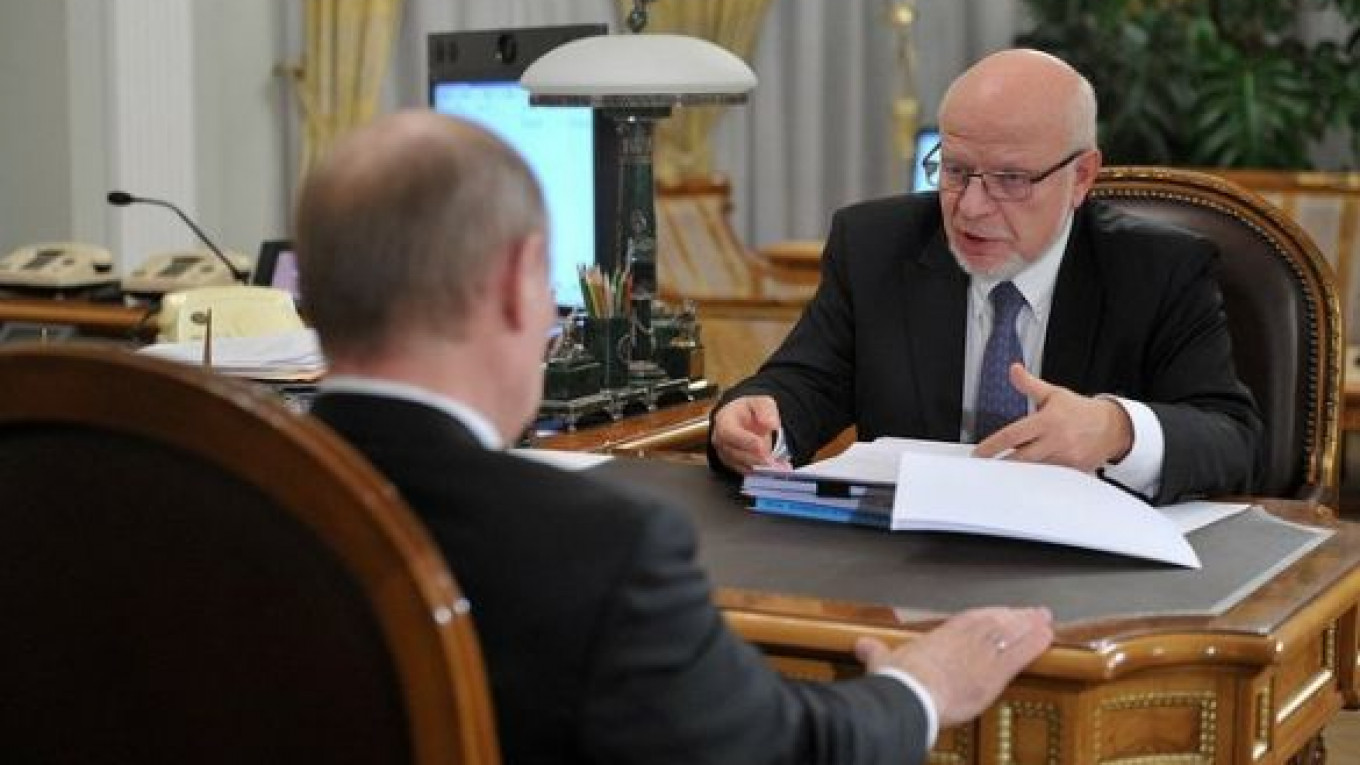President Vladimir Putin on Thursday proposed increasing the membership of the presidential human rights council from 40 to over 60 people after more than 400,000 votes were cast for candidates to the council in an online selection process.
Putin suggested the expansion at a meeting Thursday with council head Mikhail Fedotov, who presented the president with over 80 candidates for 13 open spots on the body.
After Fedotov told the president that around 420,000 votes were registered in an online ranking of candidates for the council, Putin recommended taking three candidates for each of the open seats.
"I'm not insisting on it, but it seems to me that it would be fair [to expand the council] given that the people who voted on the Internet took this seriously," Putin said, RIA-Novosti reported.
Fedotov called the proposal "radical" and "very interesting." He suggested that the membership could be increased even more, to over 70 people.
Each of the 13 open seats was set aside for a campaigner focusing on specific issues, such as prisoners' rights, extremism, xenophobia, journalists' rights, investigation of abductions and torture, Fedotov told Putin.
Among the candidates named by Fedotov were lesser-known figures as well as high-profile activists, including TV journalist Leonid Parfyonov, head of the Agora human rights organization Pavel Chikov and Lilia Shibanova, the director of independent vote-monitoring group Golos.
The human rights council, originally founded under a different name in 1993, is an advisory body for the president on human rights issues.
The usage of online voting to help select new members — which Fedotov said Thursday was actually "discussion" because only Putin has the right to determine the makeup of the council — caused some former members to quit earlier this year.
Before June, new members were chosen by the president from a list of nominees put together by sitting council members.
Seventeen people left over disaffection with the Internet voting process or with December's disputed parliamentary elections.
Some of the country's most prominent human rights defenders were among those who left the council, including Yelena Panfilova, head of Transparency International's Russia office; Lyudmila Alexeyeva, head of the Moscow Helsinki Group; and Svetlana Gannushkina, head of refugee aid organization Civil Assistance.
Related articles:
A Message from The Moscow Times:
Dear readers,
We are facing unprecedented challenges. Russia's Prosecutor General's Office has designated The Moscow Times as an "undesirable" organization, criminalizing our work and putting our staff at risk of prosecution. This follows our earlier unjust labeling as a "foreign agent."
These actions are direct attempts to silence independent journalism in Russia. The authorities claim our work "discredits the decisions of the Russian leadership." We see things differently: we strive to provide accurate, unbiased reporting on Russia.
We, the journalists of The Moscow Times, refuse to be silenced. But to continue our work, we need your help.
Your support, no matter how small, makes a world of difference. If you can, please support us monthly starting from just $2. It's quick to set up, and every contribution makes a significant impact.
By supporting The Moscow Times, you're defending open, independent journalism in the face of repression. Thank you for standing with us.
Remind me later.






